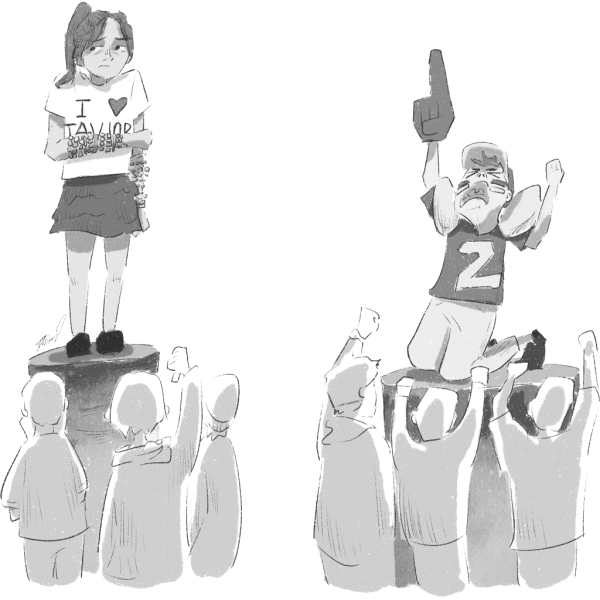Patriotism isn’t dead, despite national flaws
January 28, 2022

When I think of the word “patriotism,” images of whooping rednecks, arms akimbo and brandishing AK-47’s, bleeding red white and blue are the first things to come to mind. As someone who has grown up in America, I’ve found that “patriotism” is a word that seems to have significance beyond its literal meaning; it represents something profusely and undeniably American.
During its beginnings of the American Revolution, U.S.-centric patriotism was used to unify the scrappings of a disordered union and take on the British. Patriotism continued to stand as a pillar of shared solidarity through two centuries of wars and international conflict, finding its peaks during times of crisis like WWII and post-9/11. But ultimately, much of our patriotism hinged on the existence of a big, bad external force. But what happens if there isn’t?
Today, the “enemy” is internal. It’s our racial divisions, the extreme political divisions that deadlock our government, and our deepening wage gap. It’s the two opposing realities pushed by the left- and right-wing news media, forcing regular citizens to try and discern between fact and fiction without anything to go off of. Many of these problems are intangible, don’t have a clear solution, and are too complex to be pinned to a single source.
Recent trends show that for many, patriotism isn’t the easily-mustered sentiment that it once had been. According to a 2021 Pew Research Center study, only 39% of Americans would describe themself to be “proud” of their country. Ten percent feel ashamed, while 50% describe themselves to have a mixture of “pride” and “shame.” Among my peers, I find that most regard our country as a whole mostly with apathy, leaning toward shame.
So is patriotism dying?
In a traditional sense, perhaps. It’s hard to feel proud of a nation a can’at even unite over basic issues like the handling of a global pandemic. But patriotism as a concept doesn’t necessarily have to end with our generation.
For one, the notion of pride doesn’t necessitate the thing that you’re proud of to be flawless. For example, I’m still justified in having pride in my Han Chinese ethnicity, despite the imperfections of its history, and present.
And there’s an ample number of things that warrant pride in America. The U.S. has the mechanisms in place that allow for it to improve upon itself. The constitutional guarantee of free speech, for example, allows for groups of people to freely mobilize for their most passionate causes, even though we often take this for granted. Individuals have a voice and are able to criticize whatever they choose without fear of government suppression. And though America’s representative system currently finds itself swayed by the mega-rich, the “One person, One vote” provision along with generally short representative terms creates the potential for quick, sweeping change.
And I think that the current generation is prepared to pilot this flexible structure. I still remember the massive changes I saw during the explosion of the BLM movement back in June 2020. It amazed me to see people continually pushing for change; creating clubs, educating themselves and their families, and being open to starting and participating in meaningful dialogues.
For some, there still may be an inadequate amount of “good” to warrant patriotism or pride. To them, I would emphasize that since its conception, America was built for evolution, for inheritance and governance by the next generation. Today, we’re that “next generation” and it’s up to us to bring about chang that we can all be proud of. To bring about the change that will mean that we can truly be proud of America, the change that will revitalize the meaning of “patriotism.”






